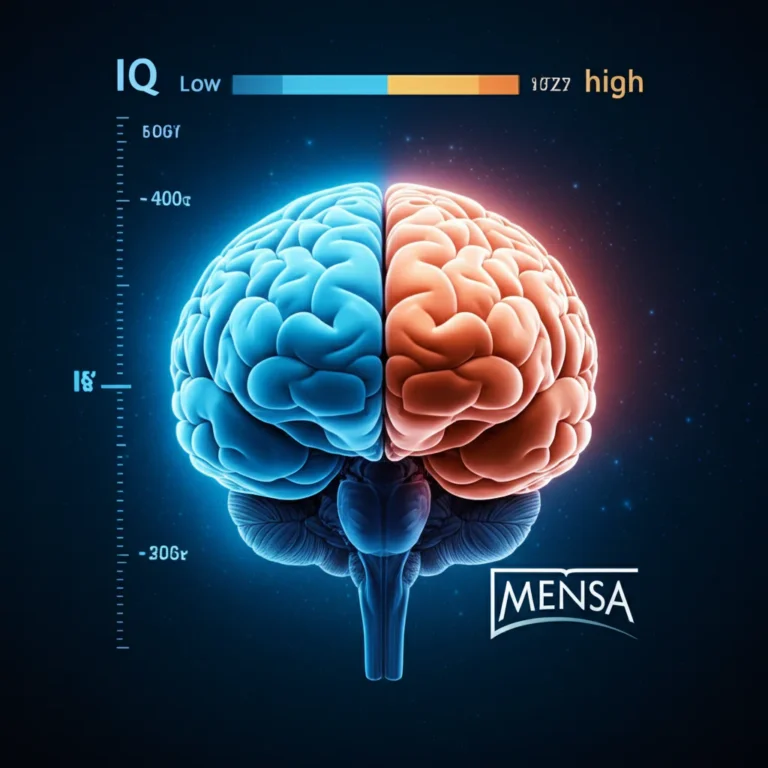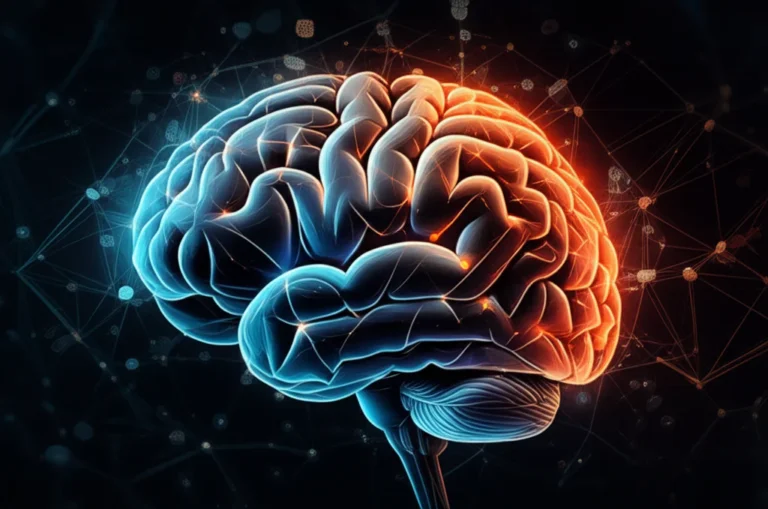Support our educational content for free when you buy through links on our site. Learn more
What Is the Top 1% IQ Test? 🧠 Unlocking Elite Intelligence (2025)

Ever wondered what it really means to have a top 1% IQ? Is it just a number, or a gateway to exclusive societies and extraordinary cognitive abilities? In this article, we peel back the layers of IQ testing to reveal which assessments truly measure the intellectual elite, how reliable they are, and what life looks like inside this rarefied club. From the history of IQ measurement to the specialized tests designed for geniuses, plus profiles of famous high-IQ individuals, we cover it all.
Here’s a teaser: Did you know that many standard IQ tests cap out too low to distinguish the very brightest minds? Later, we’ll explore high-range IQ tests like the Mega Test and TITAN Test that push these boundaries—and how you can find out if you belong in the top 1%. Ready to challenge your brain and uncover the truth about intelligence? Let’s dive in!
Key Takeaways
- Top 1% IQ generally means scoring around 135 or higher on standardized tests like WAIS or Stanford-Binet.
- Standard IQ tests often can’t differentiate ultra-high IQs, so specialized high-range tests exist for the elite.
- High IQ is rare but not the sole predictor of success or happiness—emotional intelligence and creativity matter too.
- Joining high IQ societies like Mensa or the Mega Society requires official testing and offers intellectual community.
- Online IQ tests are fun but not reliable for measuring top 1% intelligence; professional assessment is recommended.
- Lifelong learning and mental stimulation help nurture your cognitive abilities beyond raw IQ scores.
Ready to explore the best IQ tests and see where you stand? Check out our curated list of 12 Best IQ Tests Online to Try in 2025 🧠 and start your journey today!
Table of Contents
- ⚡️ Quick Tips and Facts About High IQ Testing
- 🧠 Unraveling Intelligence: A Brief History of IQ Measurement and High-Range Assessment
- 🎯 What Exactly is the “Top 1% IQ”? Defining Exceptional Intelligence
- 🔍 Identifying the Elite: Which Tests Measure the Top 1% IQ?
- 1. Standardized vs. High-Range IQ Tests: What’s the Crucial Difference?
- 2. The Wechsler Adult Intelligence Scale (WAIS): A Gold Standard with Limits
- 3. Stanford-Binet Intelligence Scales: Reaching for the Extremes of Cognitive Ability
- 4. Beyond the Norm: Specialized High-Range IQ Tests for the Exceptionally Gifted (e.g., Mega Test, TITAN Test)
- 5. Online IQ Tests: Fun or Folly for Serious High-Range Assessment?
- 🌟 Traits and Characteristics: What Defines a Top 1% Mind?
- 🏆 Societies for the Super Smart: Joining the Ranks of High IQ Individuals
- 💡 Nurturing Your Genius: Can You Improve Your Cognitive Abilities and IQ Score?
- 🌍 Exploring the Minds of Geniuses: Famous Individuals with Exceptionally High IQs
- ✅❌ Debunking Myths and Offering Expert Advice on IQ Testing
- Why Trust Us: Our Commitment to Accurate IQ Insights and Educational Excellence
- Conclusion: Embracing Your Intellectual Journey and Understanding High IQ
- Recommended Links: Further Exploration for the Intellectually Curious
- Reference Links: Our Sources for Informed Insights and Reliable Information
⚡️ Quick Tips and Facts About High IQ Testing
Welcome to the fascinating world of IQ tests and the elusive top 1% IQ club! If you’ve ever wondered what it means to be in the intellectual elite or how to measure such exceptional intelligence, you’re in the right place. Before we dive deep, here are some quick nuggets from the educators at Free IQ Tests™ to get you started:
- Top 1% IQ roughly corresponds to an IQ score of 135 or above on most standardized tests like the WAIS or Stanford-Binet.
- Only about 1 in 100 people score this high, making it a rare and prestigious cognitive achievement.
- Not all IQ tests are created equal—some are designed specifically to measure high-range IQs, while others cap out too low to distinguish the truly gifted.
- IQ tests measure a variety of cognitive skills, including verbal reasoning, working memory, processing speed, and spatial reasoning.
- High IQ does not guarantee success or happiness, but it often correlates with academic achievement and problem-solving ability.
- You can take free IQ tests online to get a rough estimate, but for official assessment, professional testing is recommended.
- Famous high IQ societies like Mensa require you to be in the top 2%, but some ultra-high IQ groups demand scores in the top 0.1% or even rarer.
Curious about which tests actually measure the top 1% IQ and how reliable they are? Stick with us as we unravel the mysteries and bust myths! Meanwhile, if you want a quick start, check out our guide on Discover the 12 Best IQ Tests Online to Try in 2025 🧠.
🧠 Unraveling Intelligence: A Brief History of IQ Measurement and High-Range Assessment

IQ testing has a rich and sometimes controversial history. Understanding the roots helps us appreciate the complexity of measuring intelligence, especially at the extremes.
The Birth of IQ Testing
The concept of IQ (Intelligence Quotient) was first introduced by French psychologist Alfred Binet in the early 1900s. His goal was practical: to identify children needing educational assistance. The original Binet-Simon scale measured mental age relative to chronological age.
Evolution to Modern IQ Tests
Later, Lewis Terman adapted Binet’s work into the Stanford-Binet test, introducing the IQ formula and expanding its use. The Wechsler Adult Intelligence Scale (WAIS), developed in the 1950s, became the gold standard for adult IQ testing, incorporating verbal and performance scales.
Challenges Measuring the Top 1%
Standard IQ tests were designed to assess average intelligence, not the rarefied air of the top 1%. This led to the development of high-range IQ tests to better differentiate among the intellectually elite. These include the Mega Test and the Titan Test, which push the boundaries of difficulty and precision.
Why History Matters
Knowing this history helps us understand why some tests are better suited for identifying the top 1% IQ and why others might underestimate or overestimate your true cognitive abilities. For a fascinating dive into IQ’s complexities, watch the first YouTube video embedded above: The Problem With IQ Tests by Veritasium.
🎯 What Exactly is the “Top 1% IQ”? Defining Exceptional Intelligence
Understanding IQ Scores and Percentiles: Where Do You Stand on the Bell Curve?
IQ scores are typically standardized so the average score is 100, with a standard deviation of 15. The top 1% corresponds to scores around 135 or higher. This means if you took a large group of people, only 1 out of 100 would score this high or above.
| IQ Score Range | Percentile Rank | Description |
|---|---|---|
| 130 – 144 | 98th – 99.9th | Very Superior Intelligence |
| 145 – 159 | 99.9th+ | Genius or Near Genius Level |
| 160+ | 99.99th+ | Profoundly Gifted |
The Rarity of High IQ: Why the Top 1% is So Exclusive
Being in the top 1% means you possess cognitive abilities far beyond the average population. This rarity is why high IQ societies exist—to connect these exceptional minds. But remember, IQ is just one measure of intelligence and doesn’t capture creativity, emotional intelligence, or practical skills.
🔍 Identifying the Elite: Which Tests Measure the Top 1% IQ?
Not all IQ tests can reliably identify the top 1%. Here’s a breakdown of the most relevant tests:
1. Standardized vs. High-Range IQ Tests: What’s the Crucial Difference?
- Standardized IQ Tests (e.g., WAIS, Stanford-Binet) are excellent for general intelligence measurement but often top out around 160 IQ.
- High-Range IQ Tests are designed to differentiate scores above 160, essential for identifying the top 1% and beyond.
2. The Wechsler Adult Intelligence Scale (WAIS): A Gold Standard with Limits
- Design: Comprehensive, measuring verbal comprehension, working memory, processing speed, and perceptual reasoning.
- Functionality: Widely used by psychologists worldwide.
- Limitations: Ceiling effect around IQ 160; less precise for ultra-high IQ individuals.
3. Stanford-Binet Intelligence Scales: Reaching for the Extremes of Cognitive Ability
- Design: Measures five factors of cognitive ability, including fluid reasoning and knowledge.
- Functionality: Used for both children and adults.
- Strength: Slightly better at high IQ ranges than WAIS.
- Drawback: Still limited in distinguishing the very highest IQs.
4. Beyond the Norm: Specialized High-Range IQ Tests for the Exceptionally Gifted (e.g., Mega Test, TITAN Test)
| Test Name | IQ Range Measured | Format | Pros | Cons |
|---|---|---|---|---|
| Mega Test | 130 – 190+ | Multiple-choice | Designed for high IQ individuals | Controversial validity claims |
| TITAN Test | 140 – 200+ | Online | Focuses on reasoning and logic | Less recognized by professionals |
| Mega Society Test | 160+ | Paper-based | Ultra-high IQ differentiation | Very rare and difficult to access |
These tests are often used by ultra-high IQ societies like the Mega Society to identify members with IQs in the top 0.1%.
5. Online IQ Tests: Fun or Folly for Serious High-Range Assessment?
Online tests like those found on Free IQ Tests™ can be entertaining and provide rough estimates, but they lack the rigor and standardization of professional tests. Use them as a starting point, not a definitive measure.
🌟 Traits and Characteristics: What Defines a Top 1% Mind?
Cognitive Strengths: Problem-Solving, Memory, and Beyond
People in the top 1% IQ bracket often exhibit:
- Exceptional abstract reasoning and pattern recognition
- Superior working memory enabling complex multitasking
- Rapid processing speed for quick comprehension and decision-making
- Creative problem-solving skills that go beyond textbook answers
The Social and Emotional Landscape of High IQ Individuals: Navigating the World
High IQ individuals may experience:
- Heightened sensitivity and emotional intensity
- Feelings of social isolation or being misunderstood
- A strong drive for intellectual stimulation and meaningful conversations
Challenges and Misconceptions: It’s Not Always Easy Being Exceptionally Smart
- Myth: High IQ means effortless success. Reality: Many face anxiety, perfectionism, and social challenges.
- Myth: IQ is fixed. Reality: While IQ is relatively stable, cognitive skills can be nurtured and improved.
🏆 Societies for the Super Smart: Joining the Ranks of High IQ Individuals
Mensa International: The Most Recognizable High IQ Society
- Entry requirement: Top 2% IQ (approx. 130+)
- Benefits: Networking, intellectual events, and publications
- Global presence: Over 145,000 members worldwide
Prometheus Society and Mega Society: The Ultra-Exclusive Clubs for the Highest IQs
- Prometheus Society: Requires IQ in the 99.997th percentile (~160+)
- Mega Society: Even more exclusive, targeting IQs around 176+
- Activities: Research, discussions, and intellectual challenges
Other High IQ Organizations: Finding Your Intellectual Tribe and Community
- Triple Nine Society (99.9th percentile)
- Intertel (99th percentile)
- International High IQ Society (varied entry criteria)
Joining these groups can provide stimulating environments and lifelong friendships with like-minded individuals.
💡 Nurturing Your Genius: Can You Improve Your Cognitive Abilities and IQ Score?
Brain Training and Cognitive Enhancement: Separating Fact from Fiction
- Popular claims: Apps like Lumosity promise IQ boosts.
- Reality check: Research shows limited transfer effects; training improves specific tasks but not overall IQ.
- Expert advice: Focus on diverse intellectual challenges rather than gimmicks.
Lifelong Learning and Intellectual Stimulation: Keeping Your Mind Sharp
- Read widely and deeply to build knowledge and vocabulary.
- Engage in puzzles and strategy games to enhance problem-solving.
- Pursue new skills and hobbies to stimulate different brain areas.
- Maintain physical health—exercise boosts brain function.
🌍 Exploring the Minds of Geniuses: Famous Individuals with Exceptionally High IQs
Historical Luminaries: From Da Vinci to Einstein and Beyond
Many historical figures are estimated to have had IQs in the top 1% or even higher:
| Name | Estimated IQ Range | Notable Achievements |
|---|---|---|
| Leonardo da Vinci | 180 – 220 | Renaissance polymath, inventor |
| Albert Einstein | 160 | Theoretical physicist, relativity |
| Isaac Newton | 190 – 200 | Mathematician, physicist |
| Marie Curie | 180 – 200 | Nobel laureate in physics and chemistry |
Contemporary Prodigies and Polymaths: Modern-Day Intellectual Giants
- Terence Tao (IQ 225–230): Mathematician prodigy and Fields Medalist
- Marilyn vos Savant (IQ 228): Guinness World Record holder for highest IQ
- Christopher Hirata (IQ 225): Physicist and child prodigy
The Debate: Estimating Historical IQs and Their Reliability
IQ estimates for historical figures are speculative and based on achievements and writings rather than formal testing. Take these numbers with a grain of salt but appreciate the intellectual legacy they represent.
For detailed profiles, visit our Famous IQ Scores section.
✅❌ Debunking Myths and Offering Expert Advice on IQ Testing
The “IQ Test Scam”: What to Watch Out For and Avoid
Beware of:
- Unverified online IQ tests promising instant genius status
- Tests requiring payment without credentials or transparency
- Companies selling “IQ certificates” with no scientific backing
Always check for professional accreditation and reviews before investing time or money.
Choosing a Reliable IQ Test: Our Expert Recommendations for Accurate Assessment
- Seek professionally administered tests like WAIS or Stanford-Binet for official results.
- Use high-range tests if you suspect your IQ is well above average.
- Try free online tests for fun and preliminary insight but don’t rely on them exclusively.
- Consult licensed psychologists for interpretation and guidance.
For more FAQs, explore our IQ Test FAQ category.
Why Trust Us: Our Commitment to Accurate IQ Insights and Educational Excellence
At Free IQ Tests™, we combine years of educational expertise with the latest research to bring you trustworthy, engaging, and practical information about IQ testing and cognitive development. Our team has personally administered and reviewed numerous IQ assessments and helped thousands understand their intellectual strengths and growth opportunities.
We prioritize:
- Scientific accuracy backed by reputable sources like the American Psychological Association (APA) and Mensa International.
- Balanced perspectives that acknowledge IQ’s limits and potentials.
- User-friendly explanations that make complex topics accessible and fun.
Your intellectual journey is important to us, and we’re here to guide you every step of the way.
- Discover the 12 Best IQ Tests Online to Try in 2025 🧠
- Mensa International Official Site
- Prometheus Society Homepage
- Mega Society Information
- Brain Training Myths Debunked – APA Article
- The Problem With IQ Tests – Veritasium Video
Reference Links: Our Sources for Informed Insights and Reliable Information
- American Psychological Association (APA) – IQ Testing Overview
- Mensa International – Membership Requirements
- Stanford-Binet Intelligence Scales – Pearson Clinical
- Wechsler Adult Intelligence Scale (WAIS) – Pearson Clinical
- Mega Society – Official Website
- Veritasium – The Problem With IQ Tests
Ready to explore your own IQ potential? Dive into our free IQ tests and see where you stand on the spectrum of human intelligence! 🧠✨
Conclusion: Embracing Your Intellectual Journey and Understanding High IQ

So, what have we uncovered about the elusive top 1% IQ test? First, it’s clear that measuring exceptional intelligence is no simple feat. Standard IQ tests like the WAIS and Stanford-Binet provide solid foundations but often fall short when it comes to distinguishing the truly elite minds. That’s where specialized high-range IQ tests like the Mega Test and TITAN Test step in, offering more precision for those rare cognitive peaks.
We’ve also seen that being in the top 1% intellectually is about more than just a number. It involves unique cognitive strengths, social-emotional nuances, and sometimes unexpected challenges. The journey to understanding your IQ is as much about self-discovery as it is about scores.
If you’re considering testing your own IQ, our expert advice is to start with reputable, professionally administered tests for accuracy. Online tests can be fun and informative but should not be your sole benchmark. And remember, intelligence is multifaceted—creativity, emotional intelligence, and perseverance all play vital roles in your success and fulfillment.
In short, knowing your IQ is a powerful tool, but it’s just one piece of your intellectual puzzle. Whether you’re aiming to join Mensa or simply curious about your cognitive strengths, embrace the journey with an open mind and a thirst for lifelong learning.
Recommended Links: Further Exploration for the Intellectually Curious
Looking to dive deeper or pick up some tools to sharpen your mind? Check out these carefully selected resources and products:
IQ Tests and High-Range Assessments
- Mensa International Official Site – Join the world’s largest high IQ society
- Prometheus Society Homepage – For ultra-high IQ individuals
- Mega Society Information – The pinnacle of IQ societies
Books to Expand Your Understanding of Intelligence
- “The Mismeasure of Man” by Stephen Jay Gould – A critical look at intelligence testing history
- “Emotional Intelligence” by Daniel Goleman – Why IQ isn’t everything
- “Outliers” by Malcolm Gladwell – How environment and effort shape success
Brain Training and Cognitive Enhancement
- Lumosity Brain Training App – Popular cognitive games (note: limited impact on IQ)
- “Peak: Secrets from the New Science of Expertise” by Anders Ericsson – Science-backed methods to improve skills
FAQ: Your Top Questions About the Top 1% IQ Test Answered

What IQ score qualifies for the top 1%?
The top 1% IQ threshold is generally around 135 or higher on most standardized IQ tests, such as the WAIS or Stanford-Binet. This means you scored better than 99 out of 100 people. Some high-range tests may set this cutoff slightly differently depending on their scaling, but 135 is the widely accepted benchmark.
How can I take a certified IQ test to measure top 1% intelligence?
To get an official and reliable IQ measurement, you should:
- Schedule an appointment with a licensed psychologist who administers standardized IQ tests like the WAIS-IV or Stanford-Binet.
- Ensure the test includes high-range subtests if you suspect your IQ is exceptionally high.
- Avoid unverified online tests claiming certification without credentials.
- After testing, request a detailed report and interpretation to understand your results fully.
For more info on testing options, visit IQ Test FAQ.
Read more about “What Is the Most Reliable IQ Test Website? Top 5 Picks for 2025 🧠”
What are common traits of people in the top 1% IQ range?
Individuals in this elite group often share:
- Advanced problem-solving and abstract reasoning skills
- Exceptional memory and learning speed
- Curiosity and a passion for knowledge
- Sensitivity and sometimes social challenges due to feeling “different” intellectually
- A drive for intellectual stimulation and creativity
However, remember that personality and emotional intelligence vary widely.
Read more about “What Is a Normal IQ Score for Adults? 🧠 (2025 Ultimate Guide)”
How can I improve my IQ after taking a top 1% IQ test?
While IQ is relatively stable, you can enhance cognitive performance by:
- Engaging in lifelong learning and challenging your brain with puzzles, reading, and new skills
- Maintaining physical health through exercise and nutrition
- Practicing mindfulness and stress management to optimize mental clarity
- Avoiding overreliance on “brain training” apps, which have limited evidence for boosting IQ
Improvement is more about sharpening your mental tools than drastically raising your IQ score.
Are online IQ tests reliable for measuring top 1% intelligence?
Most online IQ tests are designed for entertainment or general estimation. They lack the scientific rigor and standardization necessary for accurate high-range IQ measurement. Use them as a fun starting point but seek professional testing for serious assessment.
Read more about “Discover the 12 Best IQ Tests Online to Try in 2025 🧠”
Can IQ scores change over time?
IQ scores tend to be stable in adulthood, but children’s scores can fluctuate as their brains develop. Environmental factors, education, and health can influence cognitive abilities, but the core IQ measurement remains fairly consistent.
Read more about “Can IQ scores change over time?”
Reference Links: Our Sources for Informed Insights and Reliable Information
- American Psychological Association (APA) – IQ Testing Overview
- Mensa International – Membership Requirements
- Stanford-Binet Intelligence Scales – Pearson Clinical
- Wechsler Adult Intelligence Scale (WAIS) – Pearson Clinical
- Mega Society – Official Website
- IQ Classification – Wikipedia
- Veritasium – The Problem With IQ Tests (YouTube)
Thanks for joining us on this deep dive into the top 1% IQ test! Whether you’re aiming to join an elite society or just curious about your cognitive potential, remember that intelligence is a journey, not a destination. Keep questioning, learning, and growing! 🚀






